Cape Cod Poetry: Talking a look back at the best poets of 2020.
We are taking a look at the best poets of 2020 and these poets know how to take their pain and turn it into something beautiful. Using nature as a common theme, each of the poets connect their inner feelings with the beauty that surrounds them. With Cape Cod poets you can almost always count on the fact that at least a hint of nature will be ingrained. This beautiful place we call home sends different signs and takes the form of different meanings, even if we are all looking at the same thing.
Don't forget that our judges review poems from local poets every month. If you are a poet or would like to become one, follow the directions at the end of this article to send us your poem. We need your submissions to keep our monthly poetry feature going. And you get bragging rights!
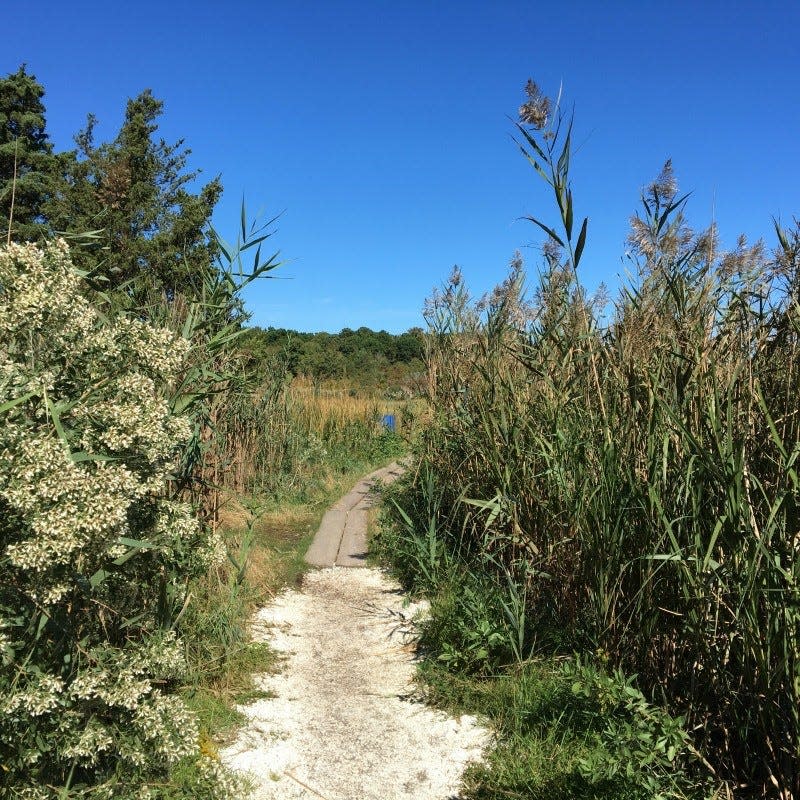
Dianne Woods Ashley, of Eastham, retired to her childhood and aesthetic home where she volunteers for Wellfleet Bay Wildlife Sanctuary, enjoys Cape Cod and is active in the community of poets, and social justice communities.
April Birthday
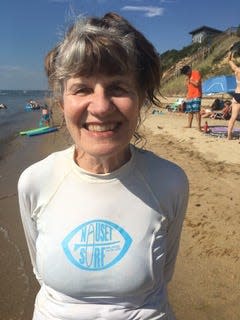
By Dianne Ashley
My father turned 91 this April. Through the bars
of his walker, his legs appear spindly.
Mid-April, the trees are see-through, buds
on the ends of twigs make the edges soft.
In the morning he sits at breakfast, head in hands,
“I’m so tired and I haven’t done Anything.”
The fiddlehead fern pushes against the seal
of soil but can’t unwrap its heavy head.
When we finally get him to the doctor,
he can’t remember the distress of this morning.
From a distance the branches look like feathers;
the trees look so light they might blow away.
He cannot read novels now: the end
of the sentence is too far from the beginning.
In May the trees remember how to
stretch buds into veined leaves.
my father’s mantra for most questions:
I don’t remember.
The crocuses open like praying fingers;
if the air turns warm they’ll ascend like balloons.
I remember his sure tennis legs, his English teacher’s
memory, his strong voice, all his effortless achievements.
His mind and body
April branches.
***
Poet Lee Roscoe write: "A Child’s Garden of Verses” from my very literate parents brought me poetry. I wrote my first rhyme at 8. My mother’s love for Robinson Jeffers “Hurt Hawks,” and my own passion for Shakespeare, Hart Crane, Rimbaud, Hopkins, Brooks and many more, plus my obsession with jazz, made poetry a language which allowed me to speak of earth, the self-soul, the sacred.
Inspiration: As prose with enjambments, it loses me ― but when language’s music and imagery transports to places I have not been, as transcendent prayer, I love poetry.
Spring During COVID
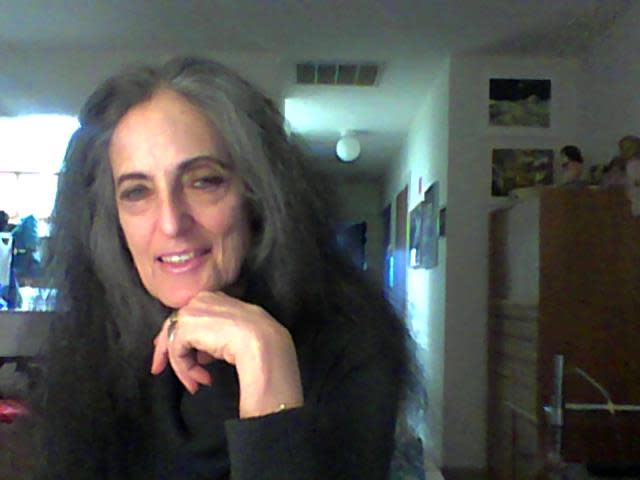
By Lee Roscoe
The daffodils made dowdy by the windy rain
Bent down to huddle,
Rise up yellow in the sun again.
Spring rebounds
In spite of humans going underground:
Magnolias right on time—
Pearlescent, pink, put Victorian ruffles
On their branches, and beneath, divine
Violet on the crocus petals spreads
In shades of sunset at the edge of night.
Grape hyacinth and periwinkles verge up, mixing
Marine and amethyst, and trysting birds sing wistful
At our absence, joyful at the clearing skies,
While deer and fox surprised at humans, gone,
Come out in daylight free from fear, no longer
Seeking shadow to protect themselves.
One wonders, since we are not out to see-
If elves are dancing in the greening glens beneath the
Leafing trees.
***
Jennifer Gostin, of Eastham, is the author of "Wonderstrand Tales," "Peregrine’s Rest," and “Enid’s Wall,” soon to be a film by Kris Holodak.
Inspiration: I’d been listening to Mozart’s “Jupiter.” When I went out for my walk that cloudy night, it occurred to me that the concert hall and nature had much in common.
April 2020
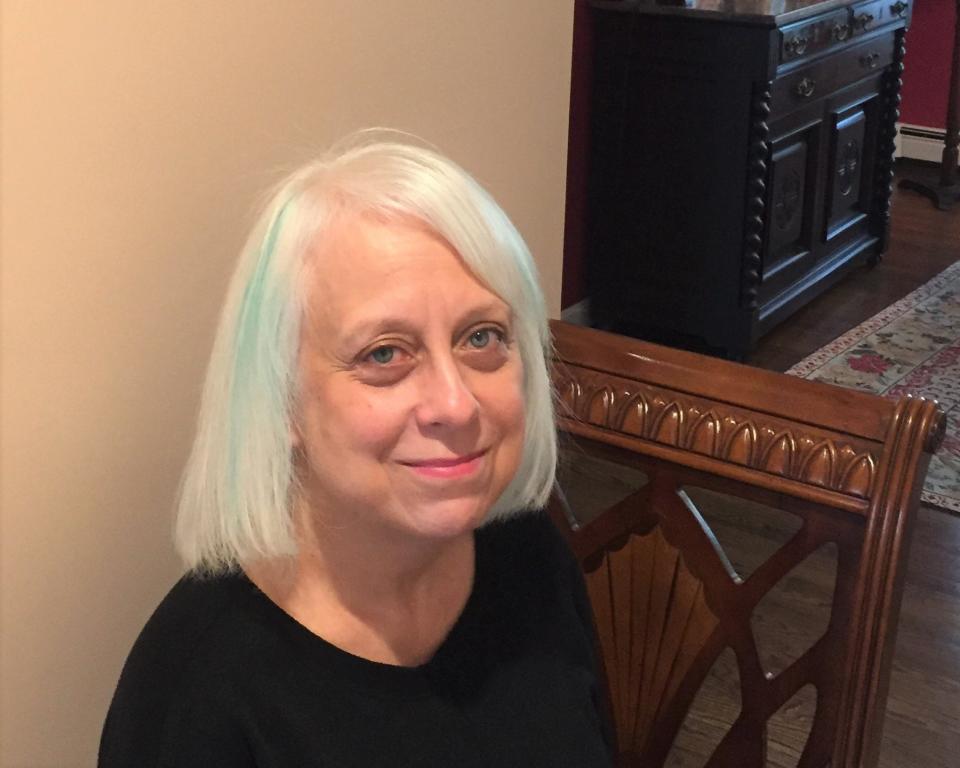
By Jennifer Gostin
The sky is a bowl, blue-gray pottery, I imagine,
Brimming with the sound of the sea, one mile away.
No stars, bold with percussion,
Like a symphony I heard once.
I can separate the pound of a single wave.
Closer, a tiny frog pipes a single note
At a cue known only to amphibians.
Then others join, a chorus with one song
Smaller than the sea, lighter than the surf.
All I can hear is the music.
***
My earliest recollection of writing a poem “Snowman” was in grade school; it was “published” in a small packet of creative writing. I was hooked. I wrote for the longest time without showing anyone as I was just trying words on at that point. Once in college, I fell in love with poetry all over again. I haven’t stopped writing since!
I have always felt things deeply. Poetry offers me the ability to explore those feelings, give them life,
and affirm other’s experiences as well.
The Last Time
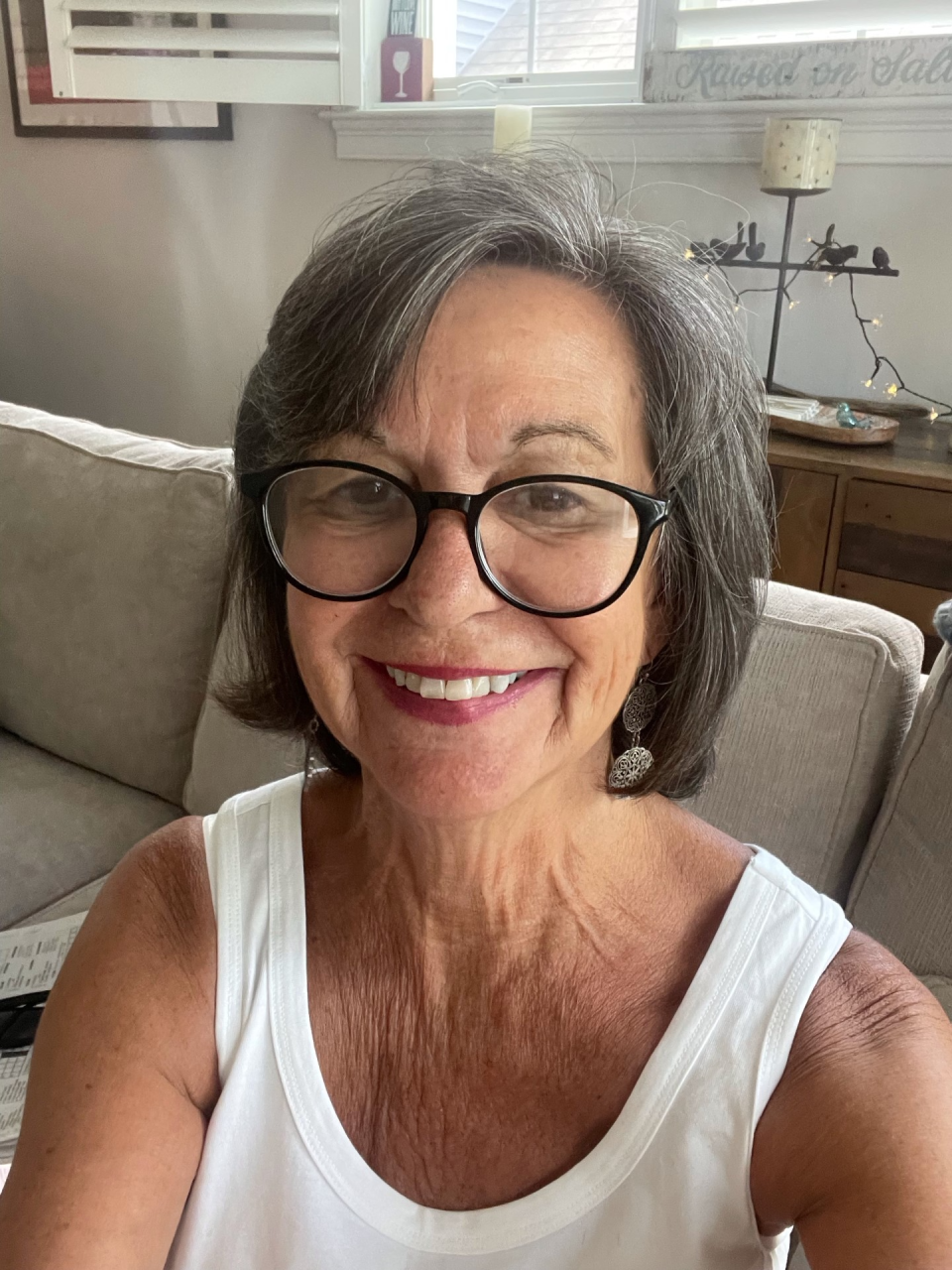
By Mary Clare Casey
There is no timeline
for grief. It finds you-
wherever you go:
in the rear view
mirror, reflecting
your surprise
that such sadness
can still pool
in your heart. It is
in the leafless birch,
in the small gesture
of drinking coffee
on a winter morning,
on the bloom
of the the primrose
that hugs
the garden wall
you built together.
You try to bargain
with it, believing
you can be friends;
in time, there is
a softening, but
even that causes you
to startle awake
in darkness, not wanting
to let the pain ease,
lest you fail to remember
the touch, the face,
the soft whisper
of a name that calls
to you when you think
You have almost
forgotten
the flash of his smile
as you turned
and left the room
that last time.
***
Donna Scheer, author of "Corona 500," lives in Falmouth, and is a member of the Sea Glass poets .
Inspiration that Scheer expressed in 2020: Predominantly a glass-half-full woman, during the day I stave off COVID distress by concentrating on poetry writing, meditation, and journaling. However, what is ignored in daylight may creep into the night as stress dreams. Fortunately, many dreams may suggest solutions to those problems. This nightmare poem offers a remedy – fearful thinking dissipates in the sunny power of optimism.
Corona 500
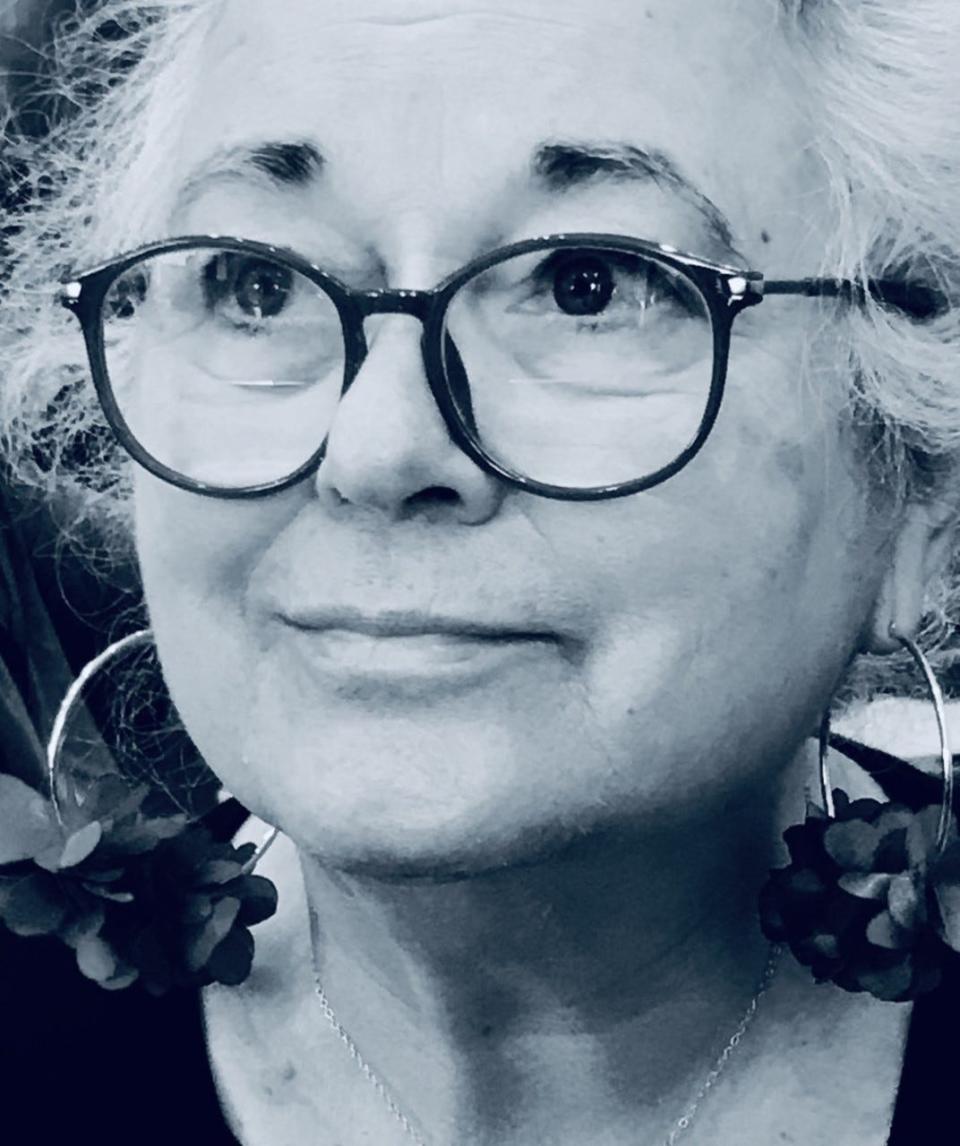
By Donna Scheer
“Went to the crossroads, fell down on my knees.” Robert Johnson, 1936
Never-ending nights, these same fear-drunk dreams
despite the handful of Guatemalan Worry
Dolls beneath my pillow.
One for the sleepless children
One for the health of my kith & kin
One, with the prayer I won’t die alone
Ladieeeeees and Gentlemen,
Start your engines…
Night after night I race my jalopy,
High Anxiety – until a slow hole
empties the gas tank.
Insidious Virus rides my bumper.
All the traffic lights stuck on red.
I am the siren wailing
Mercy!
Insidious and his flame boys
devil my doors as we head
for the Delta crossroads, Highways 49 and 61.
Hell-hogs rev and idle, spewing
smoke and high-test doom.
In lane number one “The Headless Horseman”
In lane number two “The Suicide Jockey”
In the third lane “Ghost Riding the Whip”
And in the far lane it’s “Dragin’ Her Wagon”
Before the checkered flag, The Final Lap,
I feint, lead-foot it, and veer off,
roll the windows down, turn the radio up,
belt along with the song I find myself singing.
***
Seth García lives in Barnstable and is an MFA candidate at the University of New Mexico.
Inspiration: This poem grew out of a summer spent at home during the pandemic practicing acceptance and stillness. I wanted to give deeper attention to memory, how the mind holds what isn't there, either because an event has passed or a detail isn't readily seen.
Study in Brushstroke & Memory
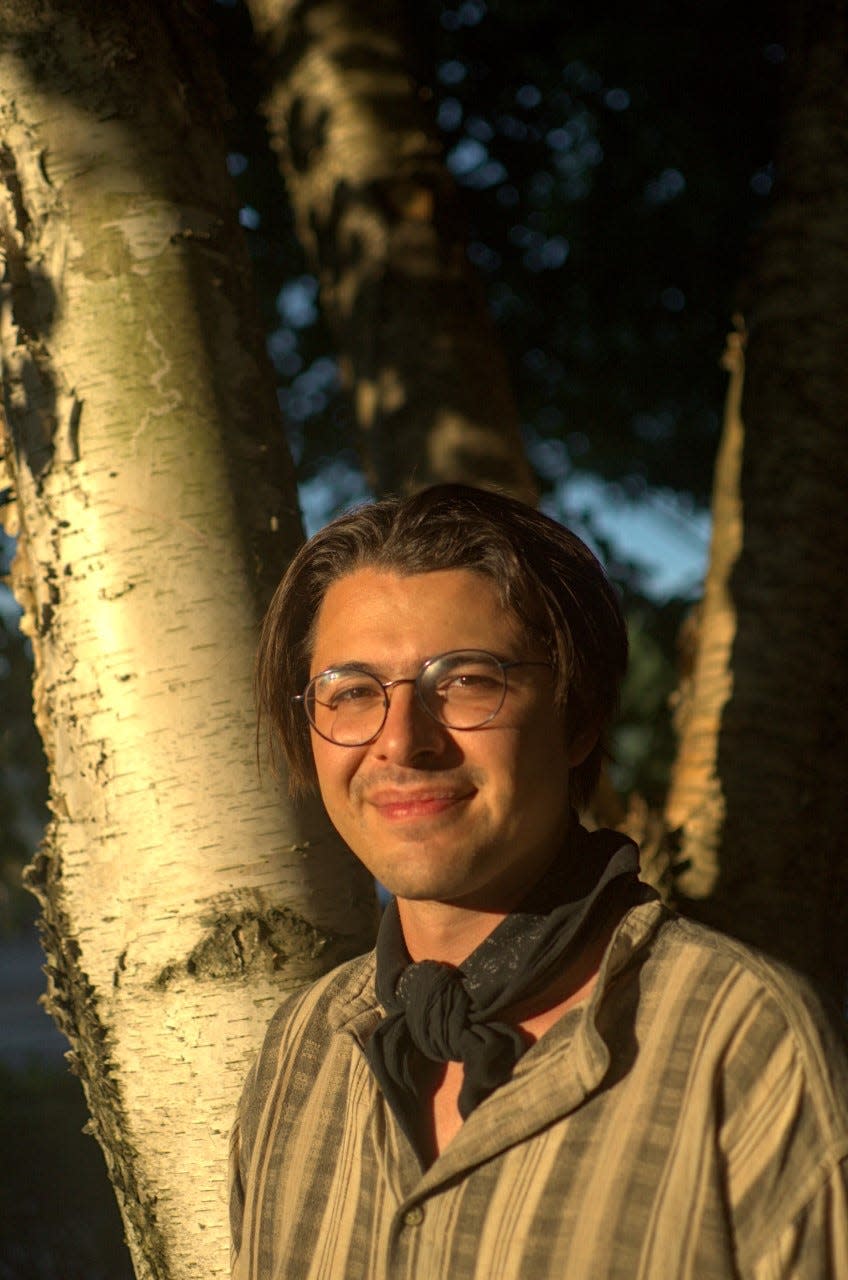
By Seth Garcia
I woke up struggling to come to terms with the whole transitory setup,
certain the plums back home must still be limned in early morning light; brushstrokes
coming out of dream. Progress I once called results comes slow.
How does one capture the ground
dust of garnets mixed with mud on my hand, memory of
the heath hen in winter—snow resting on a forgotten statue.
The way she once called it inexorable, how her laughter carried on
from another room & even
down the street.
She was here with me
until a moment ago.
Detail of light in the dew. Reversions to the old life
from which I once struggled to be free.
One day, I swear, no one will be able to tell my subject
from its material—blood from oil, pearl from star.
I go on even after I have ceased to listen.
How to submit a poem to the Cape Cod Times
Here’s how to send us your work:
Submit one poem single-spaced, of 35 lines or fewer per month.
Poems cannot be previously published (in print or online).
Deadline for submission is Aug. 1, 2023.
Submit by email to cctpoetry12@gmail.com.
Poems should be free of hate speech and expletives (profanity, vulgarity, obscenity).
In the body of the e-mail, send your contact information: name, address, phone number and title of poem; then, in a Word Doc attachment, include poem without name or any other personal info, so that the poem can be judged anonymously.
Poets not previously published in the Cape Cod Times are welcome to submit a new poem each month.
This article originally appeared on Cape Cod Times: Nature is a common denominator for these poets who wrote during COVID

